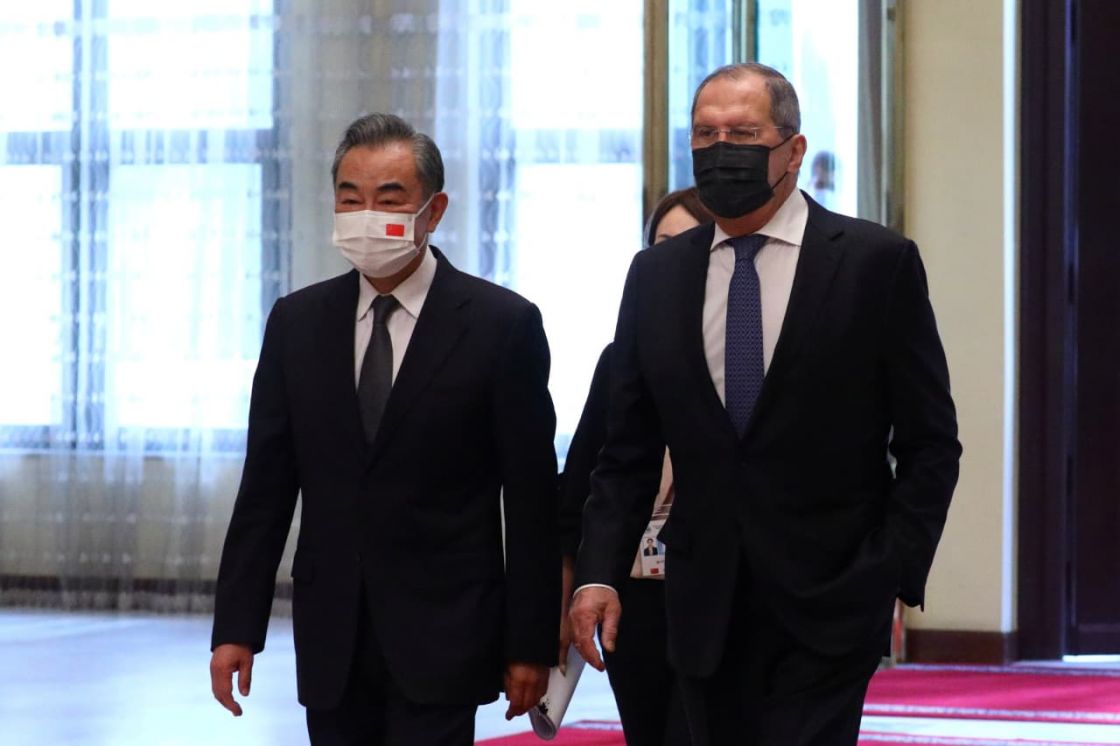- Editorials
- Posted
Kassioun Editorial 1028: A Readout of Lavrov’s and Wang Yi’s Statements
Statements on Syria by each of Russian Foreign Minister Sergey Lavrov and Chinese Foreign Minister Wang Yi during the last few days have been the center of political discussion in and about Syria.
On the Chinese side, there were statements on Syria by Minister Wang Yi’s on the 17th and 22nd of this month. On both occasions, the Chinese minister stressed UNSC Resolution 2254 and its centrality in resolving the Syrian crisis, in addition to highlighting a clearer and more direct Chinese activity on the political and economic levels. This was in complete harmony with the Russian role and in contrast to the fabrications, illusions, and dreams of the extremists from the different sides, and especially in contrast from the comical American attempts seeking to contrive a contradiction between the Russian and Chinese sides about Syria.
On the Russian side, and during his meeting with the UN Special Envoy for Syria Geir Pedersen, Lavrov made a series of statements in which he stressed not only UNSC Resolution 2254, but implementing verbatim “all aspects” thereof, and implicitly the need to resume the work of the Constitutional Committee.
Speaking about the economic and humanitarian suffering in Syria, Lavrov emphasized that “the reason, of course, is rooted in the military conflict, which devastated quite a large chunk of the Syrian territory and human settlements. But the absolutely illegal, suffocating sanctions, the so-called Caesar Act adopted by the US and similar activities – or lack of activities of the European Union – are clearly adding to the crisis.”
One can say that this description is much closer to reality than limiting the cause of suffering to Western sanctions, although the reality of things says that the military conflict itself is not the only cause and not the most fundamental reason, because in addition to external interventions, there is the economic, social, and political structure of the brutal liberal system prevailing in Syria since before 2011. However, a description of this kind is not, of course, required from an external side.
An initial inference from the high Russian and Chinese activity with regard to Syria lately is the following:
First: In parallel with US preparations to withdraw from the entire region, which is a withdrawal through which the US seeks to plant the largest possible number of explosive mines, there is a Chinese-Russian counterattack focused mainly on pushing for a political solution on the basis of 2254 as an essential tool in defusing the potential mines.
Second: Moving towards attacking with the political solution tool, as opposed to the fragmenting and detonating tools, also includes putting on the implementation track the major economic development projects by starting to create the appropriate conditions therefor, atop of which is the establishment of stability in Syria and the region in general.
Third: It is no secret that achieving a state of real stability in Syria cannot take place without a radical change process led and owned by Syrians, leading to the building of a new regime that breaks with the economic dependence on the West, and breaks with the brutal liberal model in which the controlling local elites merely represent a broker for the West and Europe in particular.
This highly coordinated activity between China and Russia, in parallel with the possibilities of a Russian-American consensus, which the US is forced to resort to in the process of managing its retreat and withdrawal, all of this should be accompanied by a more intensified activity of the Syrian patriotic forces so that their ranks are stronger in preparation for the upcoming political solution battles. These battles will require a more profound and intense struggle than anything so far, but is a struggle that will have much clearer features, and its main path will be defined by the interests of the plundered Syrian, that is, the interests of 90% of Syrians.


